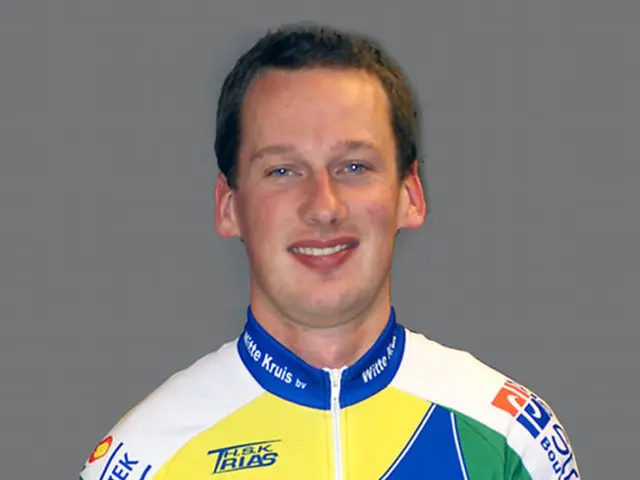Dutch Citizens Turn to Unlawful Casino Websites due to Deposit Cap Restrictions
Article: Boom in Unlicensed Gambling Amidst Tightened Dutch Regulations
By Timm Schaffner, Edited by Angela Burke, Published on: 12.03.2025, Updated on: 30.04.2025.
It seems the cat's out of the bag alongside the stricter gambling regulations enacted in the Netherlands. Witness the growing clamor for unregulated providers that don't shackle users with such limitations. A recent study has revealed a substantial surge in traffic to these providers via search engines. This escalation comes on the heels of the new restrictions issued in October 2024 [1].
Deposit caps trigger demand for the black market
The Dutch gambling authority, Kansspelautoriteit (KSA), imposed stringent deposit limits in October 2024. Adults aged 25 and above may deposit a maximum of €700 per month on licensed platforms, while under-25s are capped at €300. However, it appears that iGaming Business' findings are spot on – many providers choose to disregard these rules [2].
Enterprising individuals have seized this opportunity to avoid deposit caps, leading to a rise in users searching phrases like "casinos without limits" on Google and similar platforms [3]. A startling jump from 19 unlicensed gambling domains in the top search results in October 2024 to 72 in March 2025 supports this trend [4]. Consequently, the number of monthly visits to these illicit sites has ballooned from 172,576 to over one million visitors [5].
Google readjusts gambling content rules
The situation in Germany shows a different picture. Although many continue to search for unlicensed gambling offers, Google has managed to tighten its advertising guidelines for the process effectively. Since September 2024, there are no remaining advertising opportunities for unlicensed offers [6]. The Joint Gambling Authority of the States (GGL) acknowledges that this move has proven effective [7].
From April 2025, the rules become even more stringent. Providers without a German license will be removed not only from the paid search results but also from the organic search results in Google's list of websites [6]. Furthermore, Google has published new guidelines for gambling advertising on their subsidiary, YouTube, and emphasizes paying closer attention to country-specific regulations [8]. This could result in websites being excluded from search results depending on the user's location, as they violate the respective country's gambling legislation.
Netherlands seeks tighter gambling laws
In light of these developments, the Netherlands has announced plans to further tighten gambling regulations. The proposed adjustments include harsher penalties for infringements by companies and restricting offerings to young players under 21 years old [9].
However, the question remains whether the strict gambling policy in the Netherlands will result in better protection for players and, ultimately, curtail the illegal market's growth. In Germany, experts frequently voice concerns that excessive regulation of the legal offerings could lead to the growth of the black market [10].
References:
- New gambling law to safeguard Dutch players
- IGaming Business: Report on the Impact of Deposit Limits in the Netherlands
- Keurmerk Verantwoorde Affiliates (KVA): Study on the Increased Traffic to Illegal Gambling Sites
- Dutch Study: The Proliferation of Illegal Gambling Domains in the Top Search Results
- TSIC (the Dutch Gambling Authority) Takedown of 20 Illegal Gambling Apps
- Google Tightens Rules for Gambling Content in Germany
- GGL's Praise for Google's Successful Tightening of Gambling Advertising Guidelines in Germany
- Google's Updated Guidelines for Gambling Advertising on YouTube
- Plans to Tighten Gambling Legislation in the Netherlands
- Industry Representatives and Gambling Experts in Germany Warn of Black Market Growth due to Overregulation
- The booming unlicensed gambling market in the Netherlands appears to be a manifestation of the dissatisfaction with the Kansspelautoriteit's stringent deposit limits and restrictions.
- These harsh deposit caps have triggered a demand for black market gambling, leading to an increase in searches for casinos without limits.
- The Dutch gambling authority's regulations have pushed some providers to disregard the rules, thereby contributing to the rise in traffic to unlicensed providers via search engines.
- The number of monthly visits to these illicit sites has escalated significantly, with over one million visitors in March 2025, compared to 172,576 in October 2024.
- Migration to unregulated gambling platforms seems to be a response to the new gambling trends in the Netherlands, as many users seek a more flexible gaming environment.
- Meanwhile, the situation in Germany shows a different picture, as Google has effectively tightened its advertising guidelines for unlicensed gambling offers, reducing their prominence on search results.
- With the upcoming changes in April 2025, providers without a German license will no longer appear in organic search results, further minimizing their online presence.
- The Dutch government is contemplating further tightening gambling legislations, intending to curb the growth of the illegal market and enhance player protection.
- The prospect of stricter gambling policies and harsher penalties for infringements raises concerns among experts, who fear that excessive regulation could lead to the growth of the black market.
- Responsible gambling advocates emphasize the importance of implementing policies that encourage safe and enjoyable gaming experiences while minimizing the risks associated with casino-and-gambling, lotteries, casino-games, gambling-trends, and accident-related issues in crime-and-justice and general-news contexts.







